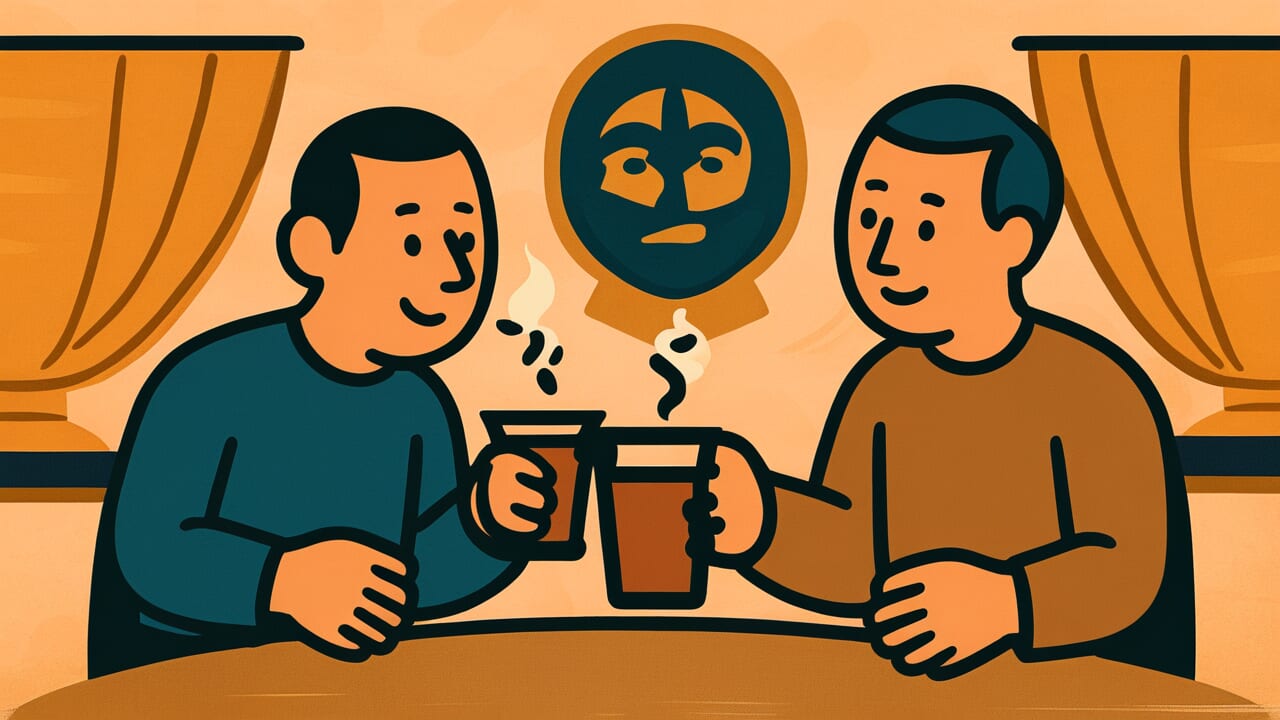How to Read “Friends and sake are better when old”
tomo to sake wa furui hodo yoi
Meaning of “Friends and sake are better when old”
This proverb means that both friends and sake become more valuable as they age. Friends you’ve known for many years develop a deep understanding of each other’s personalities and values.
They build trust that lets them support each other through difficult times. Similarly, sake that has been properly aged develops a mellow and deep flavor.
People use this proverb when they want to show that true value lies in things that have lasted, not in chasing new things or surface-level relationships.
It’s especially used when talking about the importance of bonds with old friends or praising things that have been nurtured over time.
In modern society, human relationships often become shallow. This proverb reminds us of the significance of cherishing long-lasting relationships.
Origin and Etymology
The exact source of this proverb is unclear. However, similar expressions have existed in both Japan and the West since ancient times.
This suggests it emerged as universal wisdom common to humanity.
Regarding sake, people have known through experience that aging deepens flavor since ancient times when brewing techniques developed. Japanese sake especially has been treasured when properly stored old sake develops a rich aroma and deep taste.
In the wine world too, the concept of vintage shows that quality items gain value over the years. This recognition is widely shared.
As for friendships, this proverb captures the essence of human relationships. Trust deepens when people spend long years together and share both joys and sorrows.
The idea that true friendship is a relationship that survives the test of time, not superficial connections, has resonated with people across generations.
By combining these two elements, this proverb expresses a universal truth in a familiar, everyday form. The passage of time creates value.
Usage Examples
- Drinking with a friend I’ve known for twenty years is special. “Friends and sake are better when old” is really true.
- New friends are nice, but “Friends and sake are better when old,” so I want to treasure my old companions.
Universal Wisdom
The universal wisdom in this proverb is that true value only becomes clear after enduring the test of time. This is the essence of human society.
We are naturally attracted to new things. Yet deep down, we know that what lasts contains what is genuine.
In friendships, when people first meet, they only show each other their good sides. But as years pass, weaknesses and flaws become visible.
Relationships that continue despite this are true friendships. Experiences of overcoming sadness and difficulties together, not just sharing joy, create deep bonds that words cannot express.
Sake aging follows the same principle. Complex flavors that only time can create cannot be rushed. Chemical reactions proceed slowly, and various elements harmonize.
This process is surprisingly similar to how human relationships deepen.
This proverb has been passed down for so long because it reminds us of a truth. Against human desires for efficiency and speed, it shows that truly important things require time.
Our ancestors understood that life’s richness lies not in instant satisfaction but in relationships and things nurtured carefully over time.
When AI Hears This
Sake aging may look like disorder, but extremely selective reactions actually proceed at the molecular level. In whiskey, for example, barrel wood components react with alcohol, creating hundreds of aromatic compounds.
Thermodynamic entropy increases, but information value for human taste sensors rises dramatically. Physical disorder and sensory order exist simultaneously, a rare phenomenon.
Friendships have a similar structure. At first meeting, information needed to predict the other person’s behavior is nearly zero. Entropy is near maximum.
But as shared experiences accumulate over time, the other person’s reaction patterns become predictable. In information theory, increased predictability means decreased information entropy.
With a ten-year friend, you can predict with high probability how they’ll act when troubled or what makes them happy. This improved prediction accuracy is the true nature of trust.
What’s interesting is that both sake and friendship require an irreversible time process to create value. Chemical reactions and human relationships both need an aging period that cannot be shortened.
This shows that information quality can only be acquired through quantitative accumulation. Quick-frozen relationships lack depth because they haven’t gone through the natural process of information entropy reduction.
Lessons for Today
This proverb teaches us that truly valuable things in life are those we nurture over time. In an era when SNS lets us connect easily, we tend to lose sight of the weight of long-lasting relationships.
But a few friends you’ve known for ten or twenty years will be more irreplaceable in your life than hundreds of acquaintances.
What matters is the attitude of carefully nurturing your current relationships. Contact old friends, make time to meet regularly, stay interested in their changes.
These small accumulations build deep trust over the years.
This proverb also teaches the importance of recognizing the value of what you already have, not just chasing new things. Long-time friends around you are like well-aged sake.
Don’t take that relationship for granted. Feel its value anew. You’ll surely see the richness of life.



Comments